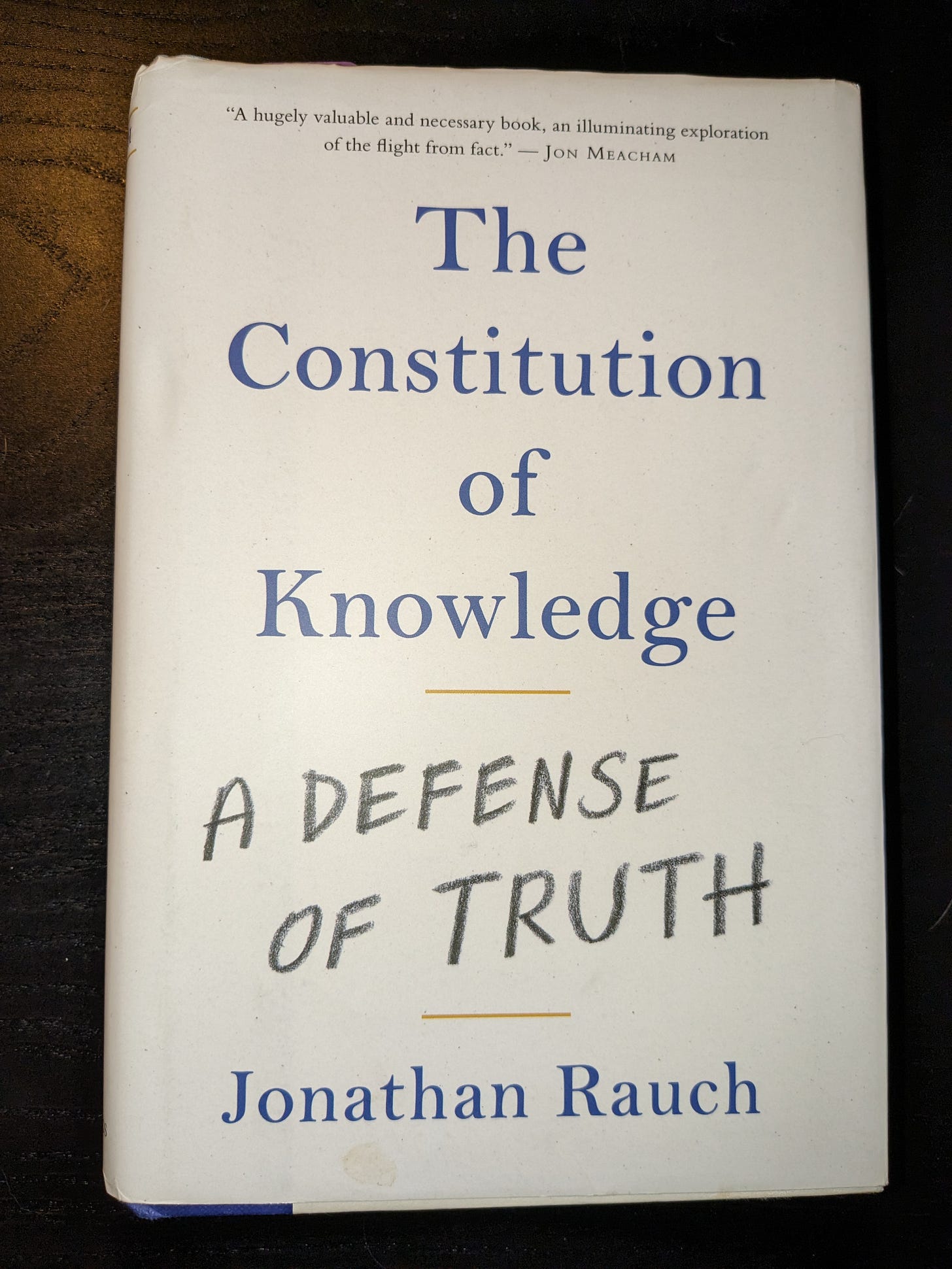The Constitution of Knowledge
Jonathan Rauch
When I Read It
I devoured this book sometime during the COVID Pandemic. Memory is hazy about the exact years.
What It’s About
The Constitution of Knowledge is a popular political science (?)1 book that explains how liberal democracies work by describing the networks of institutions that support it. Sound familiar?
Rauch offers one telling of the story of how liberal democracies came to be. He starts with the premise that we began in tribal societies, where our sense of knowledge and truth arose from our alignment with our tribe. He then argues that the Englightenment and Scientific Revolution moved us away from tribalism towards a “reality-based community” that came to knowledge and truth through testing ideas and reaching consensus via a network of institutions, which he calls “the constitution of knowledge.” He explains how 21st century problems like disinformation and cancel culture threaten the institutions that support building knowledge in this way. And he ends with a call to action to mobilize to defend the constitution of knowledge.
What I Learned From It
What Rauch did for me in this book was clarify vague notions I had always had about liberal democracy. He painted a picture of how it all fit together. And that was powerful for me because I think I have more agency when I understand how systems work. And anything that brings coherence to disorder wipes away some of the cobwebs of confusion ever clouding clear reasoning in my mind.
Who Might Find It Helpful
I think every American Millennial and Gen Zer should read it because it does show how much we have in common and how important those common values are. And if I may attempt to persuade my fellow kids…
I think one of the consequences of the end of the Cold War was that American Millennials and Gen-Zers had little in the way of viable contrast to pit against our own society. And it is hard to understand who you are and what you value unless you can see who are NOT and what you do NOT value. That contrast becomes clearer when you are regularly reminded of a society that has very different values, like the USSR did.
The American Millennials and Gen-Zers had no great national enemy except “terror.” The wars in Iraq and Afghanistan perhaps gave us some contrast, but the ostensible target was never explicitly autocracy or Islamic authoritarian government. We have national allies with those values. The ostensible enemy was always this vague “terror” that we were at war with, and this did not provide adequte contrast to help us define our own society.
I think it wasn’t until the key problems Rauch identifies—disinformation and cancel culture—became so pervasive that we needed books like this to help remind us what cooperative project we were working on. The Cold War was a constant reminder. And now, books like this are a reminder: don’t forget what we’re doing here!
Last Word
Rauch frames the book around the Platonic dialogue Theaetetus. After a discussion probing the depths human reason, Socrates says to Theaetetus: “But in the morning, let us meet here again.”
Rauch points out that Socrates conversation with Theaetetus never ended. It continues with us.
So, in a little while, let us meet here again.
Classifying this book into a literary genre alludes me. It’s one of those “this is what’s wrong with society” books. It’s for a popular audience, but draws widely on expert knowledge.



